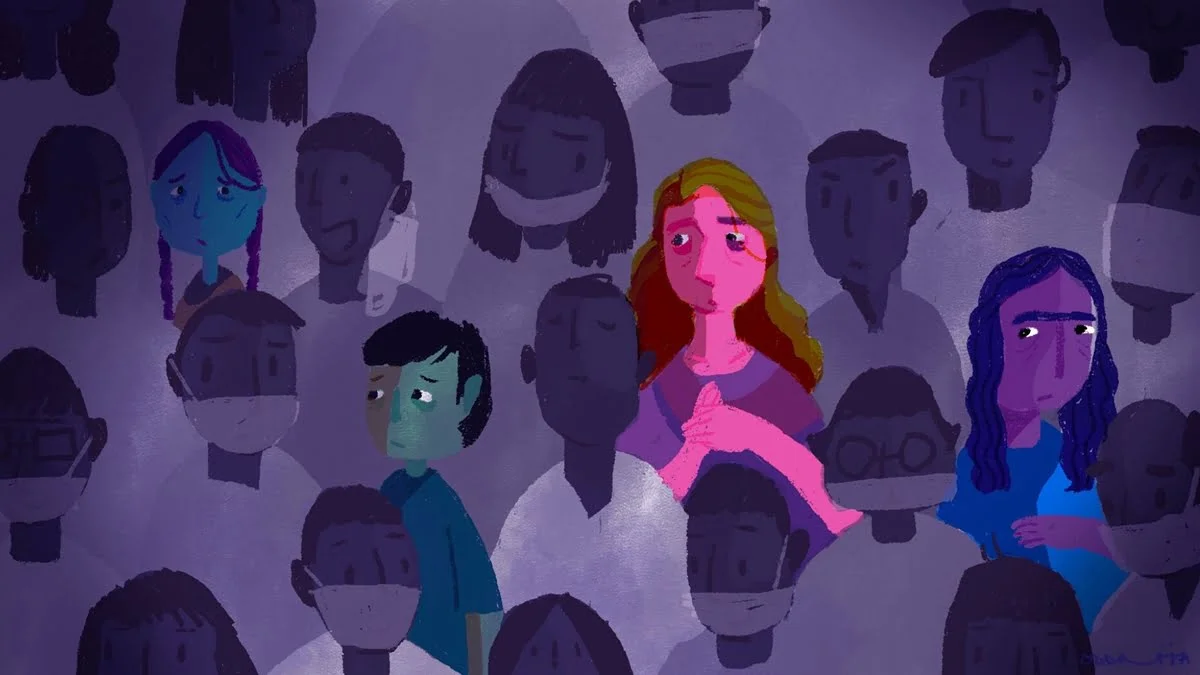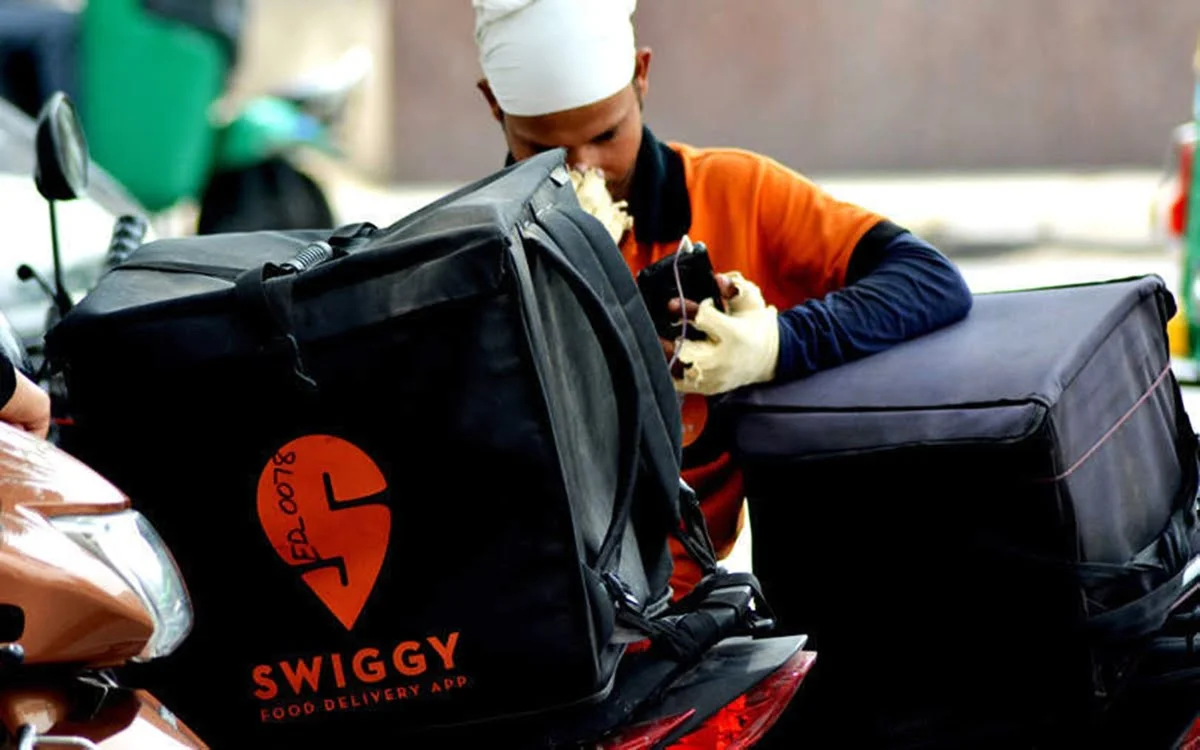The state as a modern capitalist notion often pursues eliminationist policies to repress dissent. The law in a regime change becomes a repressive state apparatus which functions to crush revolutionary people’s movement and penalise dissent. The identity of a political prisoner thus becomes a contested category with an attempted condensation with criminalisation. The notorious Unlawful Activities (Prevention) Act was amended in 2019 which is an instrumental act in dealing with the procedures to deal with terrorist activities.
UAPA is infamous for its vague definition of criminal designations like ‘terrorism.’ In multiple petitions against the draconian law, the petitioners argued that an individual booked under this law may be identified as a terrorist without any judicial scrutiny or any free trial. It violates the constitutional rights of equality, speech and life.
Studies reveal that political prisonerhood is imposed on marginalised identities through the state machinery of repression. The category of women in prisons booked under laws like UAPA and the colonial law sedition thus becomes a critical site of the exposition of the fallacy of law.
Penalising criminality in/of women
The contested space of a prison is not alien to the experience of womanhood where the gaze of morality and normativity constantly regulates their personhood. A report by Diksha Pandey titled ‘Female Prisoners in India: The Consequences of Triple Marginalisation‘ published by SPRF India states that motivational factors of a particular crime are also gendered to an extent. She continues that “given their submissive position within the structure of a household and the resulting financial inequality and dependency, women commit “property crimes” and petty crimes such as shoplifting, more often than “violent crimes.” A majority of female prisoners are arrested in India for crimes related to prostitution, dowry murder or murder of a male relative in response to torture or sexual harassment.
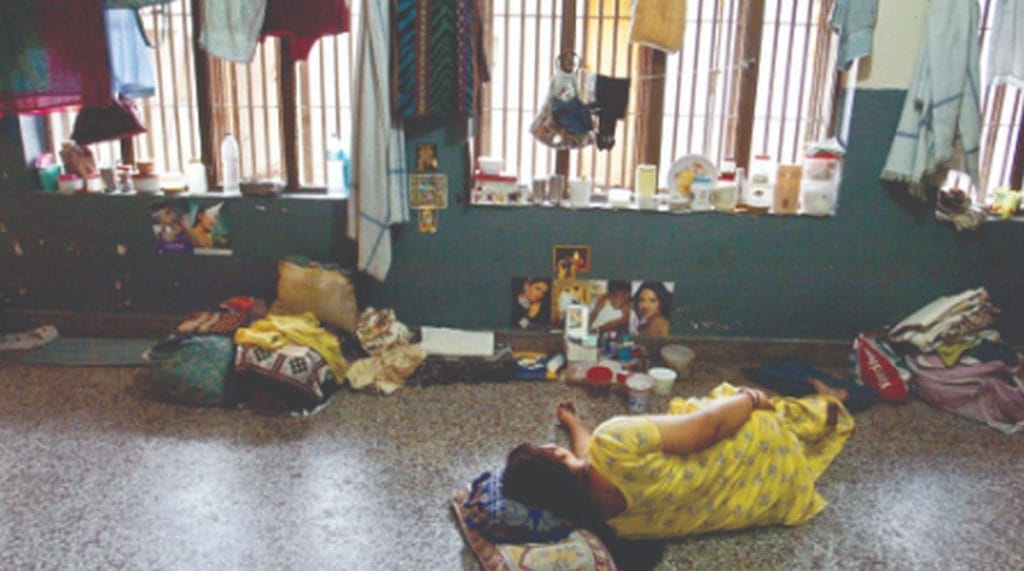
The criminality of any form is an ultimate form of deviation for a woman. And these deviations are meant to be punished publicly to become a performance or an illustration of how normalcy is what the hegemony ascribes to the marginalised. Prison infrastructure is moreover designed with a disciplinary approach rather than a human-rights model-based approach; a space of persecution rather than a space of reform and rehabilitation. United Nations Rules for the Treatment of Women Prisoners and Non-Custodial Measures for Women Offenders(the Bangkok Rules) were adopted by the General Assembly on 21 December 2010. These measures detail the minimum rules for the treatment of prisoners with discretionary rules for female prisoners. Despite such measures, sexual harassment and abuse continue to be rampant in Indian prisons.
Incarcerating dissenting women
Between 2016 and 2020, 24,134 people have been booked under more than five thousand cases. Of these, more than 6000 prisoners are still under trial with little access to legal aid. The data on those accused under UAPA does not include demographic indicators of caste, religious identity or gender. Partho Sarothi writes in The Wire that there is a visible proximity between marginal identities and those booked under UAPA. While the Elgar Parishad Case and Bhima Koregaon case are manoeuvred to target the Dalits, Muslims and activists protesting against the Citizenship Amendment Act at Shaheen Bagh are under trial in the Delhi Riots Case 2020.
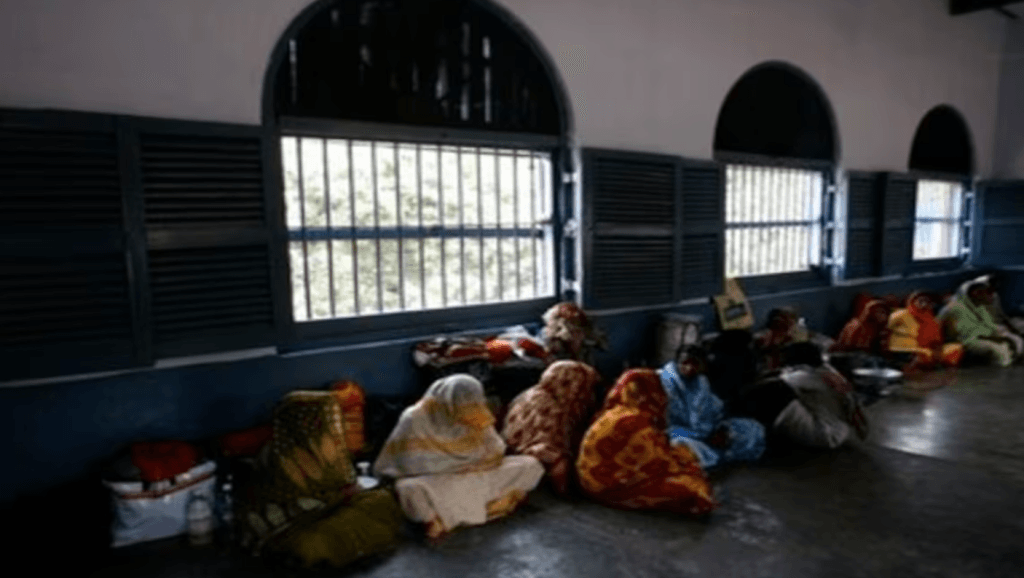
Political Prisonhood is another contested category that is graffitied on the bodies of the dissidents of the state. The state is particularly responding to the people’s agitation in the form of movements and protests through this incarceration. Post-independence, diverse assertions of rights by the subjects left on the periphery of nation-building projects were subtly essentialised as “anti-national” through a ‘conflation of the political and national.’
The political prisoners of independent India, unlike the political prisoners of colonial India, are not in the same category as the celebrated freedom fighters. These deviant aspirations are a threat to ‘national security,’ in the mainstream imagination and the distinctiveness of these People’s movements is crushed under the stereotypical representation as terrorists and Maoists with funding from Russia, China and Pakistan.
Profiling dissidents
Natasha Narwal and Devangana Kalita were booked under UAPA after the Delhi Riots. They both are researchers, human rights activists and founding members of a Pinjra Tod, a collective to end discriminatory curfew timings in hostels and paying guests. She has constantly campaigned for women reclaiming urban spaces irrespective of any safety valves. Under pre-trial custody, they have remained in Tihar’s Jail-6 for about a year. Narwal and Kalita were first arrested for peacefully protesting against the Citizenship Amendment Act 2019.
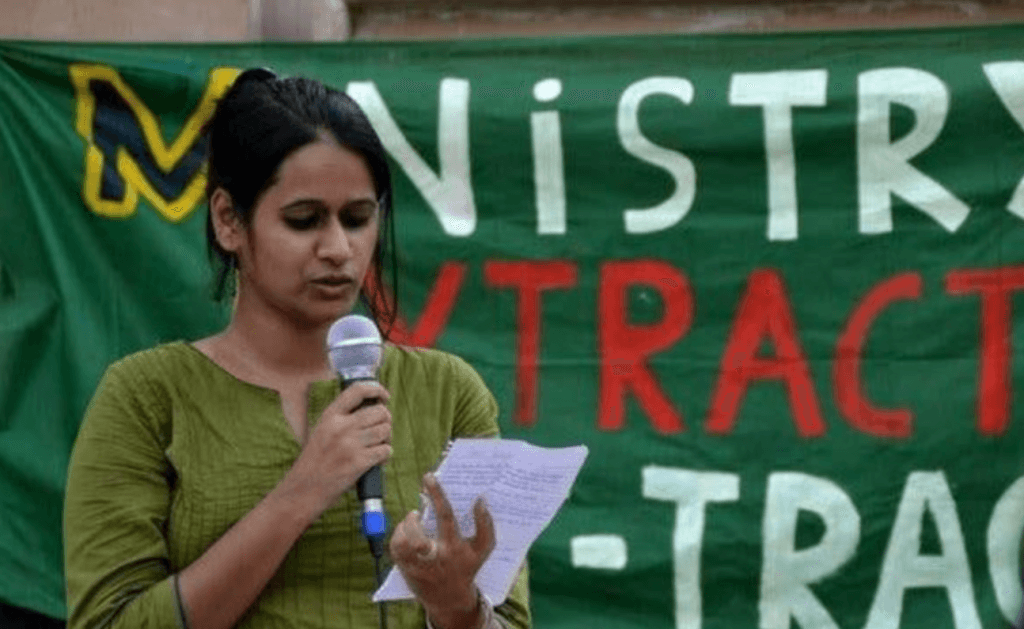
After securing bail, they are again arrested under UAPA for charges including rioting and attempted murder after the Delhi Riots of 2020. In both the cases the ruling there was no evidence but the stringent procedure of bail under UAPA prolonged their incarceration. They exchanged numerous letters with their comrades describing their plight and anxieties. In one of the letter published by The Caravan Journal Narwal writes, “Basically prison is an extension of the logical end of all the unfreedoms in the society one has been fighting against, everything meant to crush one’s autonomy. But I have seen—even in a place like this which is meant to strip away one’s autonomy and humanity, reduce people to bare life—people still manage to retain some, hiding them in nooks and corners, hiding them from always prying eyes.”
Safoora Zargar, a researcher in sociology at Jamia Millia Islamia was arrested under UAPA when she was pregnant and denied bail three times. Describing the cruelty of the prison space in an interview Zargar says, “I was very dazed through it all. I just kept feeling that it was a nightmare and it was going to be over.” With threats of custodial violence and solitary confinement, the prison continued to become an experience of turning citizens into the subjects of the hegemony.
The lived experience of women political prisoners or those under trial also positions an argument for the worldview of abolition feminism. Against carcerality, abolition feminism argues that rather than addressing penalisation a society and community-based approach to justice and law is required. This is to say that beyond interpersonal violence incarceration must be viewed from an approach where we can see that the state is also an active member in violence. A community-based approach rather than a state-centric approach is central to the arguments of abolition feminists.
A continnum of resitance
Ujwal Kumar Singh writes in ‘Political Prisoners in India‘ that, “the identity of ‘political prisoner hood’ is constructed in the process of resistance against state power.” Some major names who were booked under UAPA include Natasha Narwal, Safoora Zargar, Disha Ravi, Nassema Bano, Masrat Zara, Devangana Kalita, Sudha Bharadwaja, Jyoti Jagtap and many such women fighting for civil liberties and democratic rights. Sudha Bharadwaja, a prominent people’s lawyer was booked in the Bhima Koregaon Case amongst sixteen intellectuals. In her prison memoir ‘From Phansi Yard: My Year With The Women of Yerawada,’ she chronicles the lives of women prisoners along her in under-trial cases.
In an interview with Times of India she says, “When you imprison a woman, you imprison a family.” The carceral experience of women is greatly different from that of male prisoners. Corrolary rehabilitation is also a serious concern that needs to be addressed. The infrastructure of prison rather than being an enabling space becomes a space of (re)trauatisation resulting in psychological debilitation and physiological impairments.
Read in these lights the incarceration of women as political prisoners must be read in consonance with the death of Stan Swamy and Dr. G.N. Saibaba. The dictum of ‘justice delayed is justice denied,’ must be accentuated for the continued rejection of repressive laws and incarceration of the marginalised in fabricated cases and fallacious laws.
About the author(s)
Anchal is a writer, poet and spoken word artist based in New Delhi. Her works have been published on various platforms, including Enroute Indian History Blogs, Indian Review E-Journal and department and annual magazines of Miranda House, Kirori Mal College and Gargi College. Currently, she is pursuing an MA in English at Jawaharlal Nehru University, New Delhi and loitering around the city.



